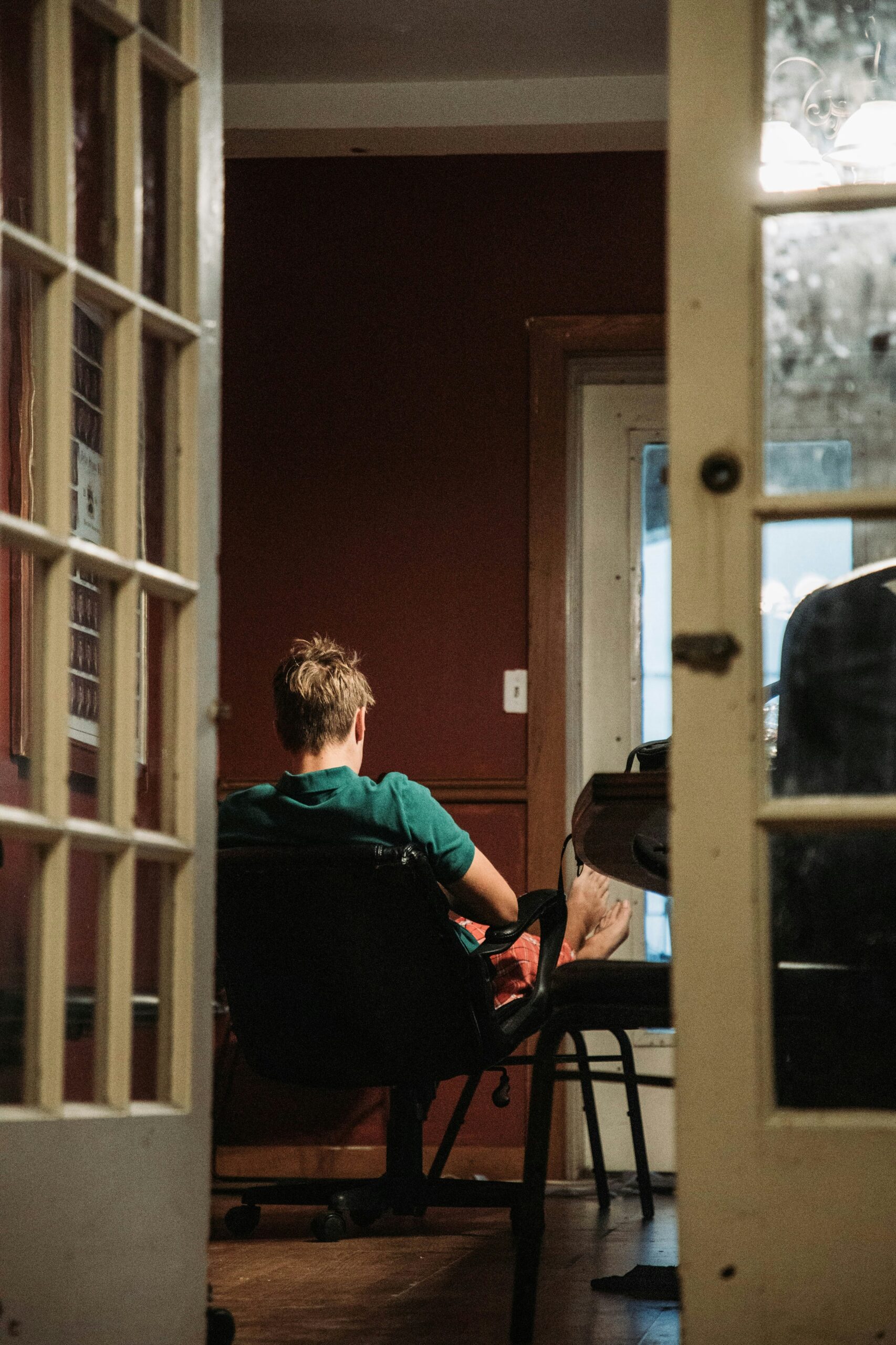From 2023, Dutch students will once again receive a basic grant. Meanwhile, over one and a half million people are currently paying off their student debt to the student finance organization DUO. Student debts running to tens of thousands of euros have become quite common. How does that happen? And how do you get rid of your debt? Will you still be able to buy a house? And will the new cabinet arrange compensation for the unlucky generation?
The highest student debt in the country comes to exactly 199,410 euros and 17 cents, according to DUO. But such a massive debt is an exception.
A total of 1,560,289 students (at all universities and vocational training colleges) have a debt, and that is 220,000 more than in 2016. Nearly half are less than 10,000 euros in the red with DUO. Four percent have less than 500 euros outstanding. On the other hand, 20 percent of debtors (316,000 people) still have a debt exceeding 30,000 euros. And for 1000 of these, there is still more than 100,000 euros to pay off.
How do you end up with so much debt? You can borrow more than 500 euros every month, and more than 900 euros if you do not receive a supplementary grant. The tuition fee credit is currently 90 euros (tuition fees were halved because of Covid) and in normal years it is 180 euros. Suppose you borrow 1000 euros a month. If you do that for seven years – for example, to study medicine with a one-year extension – you can easily end up borrowing 84,000 euros.
100,000 euros
And the outliers above 100,000 euros? To reach that level of debt, you have to make maximum use of all the possibilities, says a DUO spokesperson. For example, after high school, you can be on a vocational training course (‘mbo’) for years on end without obtaining a diploma, and then start an expensive private university course for which you apply for extra tuition fee credit (because you can). If you take out the maximum loan for years, your debt can mount up considerably. And if you never graduate, you have to pay everything back: your basic grant, your supplementary grant and your public transport pass.
Another important point is that the amount gets even higher if you don’t pay it off. You get additional fines and the bailiff comes calling. DUO cannot say anything about that highest debt of almost 200,000 for reasons of privacy, but this is roughly how it must have come about.
When the basic grant was scrapped, students started borrowing more: 600 euros per month on average. Not all students come knocking on DUO’s door, though. With or without a basic grant, one in five students do not want to borrow. And yet high debts have become more normal and five years down the line, one in four first-year university students had a debt of more the 40,000 euros.
The average student debt – excluding non-borrowers – has increased by about 5000 euros to almost 30,000 euros. And these debts could rise further, as some of the students are still studying.
In debt until retirement
For how long are you burdened by your student debt? Here are the rules: You do not have to pay DUO anything for the first two calendar years after you graduate. You have up to 35 years to repay your debt and you are allowed to halt payments for a total of 60 months (five years) if you’re in difficulties. So that brings the total period to 42 years and a few months. For example, if you graduate at 24, you can be paying you’re your debt until you are 66. Only then is any outstanding sum waived.
If you graduate at 24 you can be paying back until you are 66
So how much will you pay? At a zero percent interest rate, it’s simple. If you owe 30,000 euros, divide that by 35 x 12 months. That is 71.43 euros per month. But DUO takes your income into account. In this example, if you earn 40,000 a year before tax, the monthly repayment will be 10 euros lower, and if your income is 22,930 euros (that’s a bit more than 1,900 euros per month), you will pay nothing. And if you have a partner, both your incomes and both your student debts are taken into account.
Buying a house
It is often claimed that the new loan system means you can no longer buy a house. Is that true? Under the old system you could borrow money too. The conditions were less favourable then: you had to repay the debt with higher monthly payments within 15 years. Debts under the old system have twice the negative impact on a mortgage. An ‘old’ DUO debt of 10,000 euros reduces the mortgage you can get by 19,000 euros.
In the new loan system (in place since September 2015) you will not receive a basic grant, but you can borrow under favourable conditions: you get 35 years to repay and your monthly payments are lower. So a debt of 10,000 euros means a maximum mortgage that is 10,250 euros lower. Those who need to borrow a lot of money are better off under the new system than under the old.
According to financial specialist Karin Boog of Vereniging Eigen Huis, student debt is a relatively minor problem compared to the rapid increase in house prices. Ten years ago, the average house cost 227,000 euros. ‘In the last few months of 2021, the average house price was over 438,000 and new builds are even more expensive,’ says Boog.
Concealing a debt is possible, but it is fraudulent
There is a solution: you can conceal your debt, since student debts are not known to the Credit Registration Bureau. ‘Don’t do that,’ says Boog. It is fraud and it can have consequences. Creditors can even make you pay off your mortgage at one go if they find out. You also lose the National Mortgage Guarantee (which provides help in case of payment problems for houses of up to 355,000 euros). Moreover, creditors increasingly often require their customers to reveal the amount of their student debt at DUO.
Politics
Opponents of the current loan system tend to blame the ruling VVD party: the conservatives are the only ones who still think the basic grant is nonsense and are not in favour of compensating ‘unlucky students’. But at one point, there was a majority in favour of the loan system. It was introduced in 2015 by a cabinet made up of the VVD and the left-wing PvdA, with the support of the then opposition parties, the liberal democratic D66 and the green GroenLinks.
For the VVD, it was a step towards the liberalization of education: you pay for it yourself and you profit from it yourself. For the left-wing parties, it was a question of levelling up: this way, less money goes to people who can in fact afford to fund themselves.
The centrist CDA has always opposed the abolition of the basic grant, but argued in the past for higher tuition fees (which almost comes to the same thing) and a ‘long extension penalty’ (increased tuition fees for students who extended their studies by more than a year). The loan system never became popular and GroenLinks was the first party to drop its support for it in 2019.
Compensation
As of September 2023, there will be a basic grant again. This will be a performance-related grant: you will only receive the grant if you graduate. The transition will be interesting. Suppose you are a first-year student now, what will happen in September 2023 when you start your third year? Will you receive a student grant for your last two years, or for all four years? Or nothing at all?
I feel I’ve been screwed three times over by the loan system
In the meantime, the students of the last few cohorts are glumly seeing how previous and future student generations benefit from grants, while they fall between two stools. On top of which, their university experience has been disappointing because of the impact of Covid-19. They want compensation, but the government is only talking about a modest ‘concession’ for which it has earmarked one billion euros.
Education Minister Dijkgraaf still has to work out the details of the compensation, but it will be between 1000 and 1500 euros per student. ‘Students for whom no basic grant has been available, can choose between a reduction of their debt or a study voucher,’ says the coalition agreement. Even the most meagre compensation would cost 1.4 billion euros, officials have calculated, and the amount available is 400 million less than that. Student organizations are fighting for a better deal and Minister of Finance Kaag has not closed the door completely, so who knows what the future will bring.
There is an additional concession, though, for the first four cohorts affected by the loan system: a study voucher worth 2000 euros which they can spend on additional higher education for five to ten years after graduation.
Susan van Weperen (23), an MSc student of Communication, Health and Life Sciences, has a smaller student debt than average.
‘I did my Bachelor’s in Portland. I didn’t have to pay anything for that because I got a full sports scholarship. That scholarship included housing and meals, so my costs were low. I was able to cover the costs I did have with savings from my high school days and by working during the summer holidays. When I went to Wageningen for my Master’s degree, my financial situation changed, of course. Now I borrow a small amount, and I try to make ends meet as best I can with my part-time job and the savings I have left.
I am very happy that the basic grant is being reinstated. Education should be accessible to everyone, regardless of your background and financial situation. Because of the loan system, that is not the case now, and yet education is a way of increasing equality and giving people equal opportunities. I can see that around me. There are people who do not continue their studies because of the costs. I also know people who are very worried about their high student debt. I myself am not so worried about my student debt, because it is not that high. I also know that if something went wrong, I could fall back on my parents. But it’s not like that for everyone. Because you don’t get a basic grant now, things like that increase the inequality between students.’
Noortje (24), an MSc student of Food Technology, has a student debt of more than 50,000 euros.
‘Before I started studying, I figured out how much I would need to borrow every month to make ends meet. I looked at all kinds of websites to determine what the costs are for an average student. My parents paid for my room and gave me a monthly allowance. I didn’t have a job on the side during my Bachelor’s. I set my DUO loan at 700 euros per month. At the beginning of my student years, I didn’t think my student debt would get so out of hand: I thought I would end up with about 40,000. But I wanted to do fun things, eat well and take longer over my Master’s in order to do two majors, so that increased my debt. If there is fair compensation, I will be happy. I feel I’ve been screwed three times over by the loan system. Firstly, of course, I didn’t get a basic grant, while students before and after me will. Secondly, the promised investments in education haven’t been made yet; by the time they will have been made, I will have graduated again. And thirdly, it was said that a student debt would not be taken into account in a mortgage application, but now it is. I therefore think that every student should be compensated to the tune of the basic grant they missed out on.’

 Text: Bas Belleman (HOP) | Text boxes: Emma Mouthaan | Photo: Guy Ackermans
Text: Bas Belleman (HOP) | Text boxes: Emma Mouthaan | Photo: Guy Ackermans 

